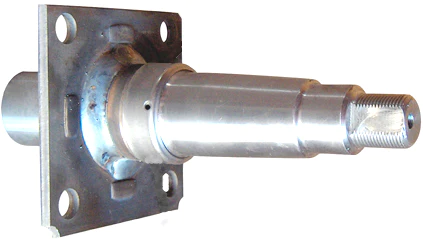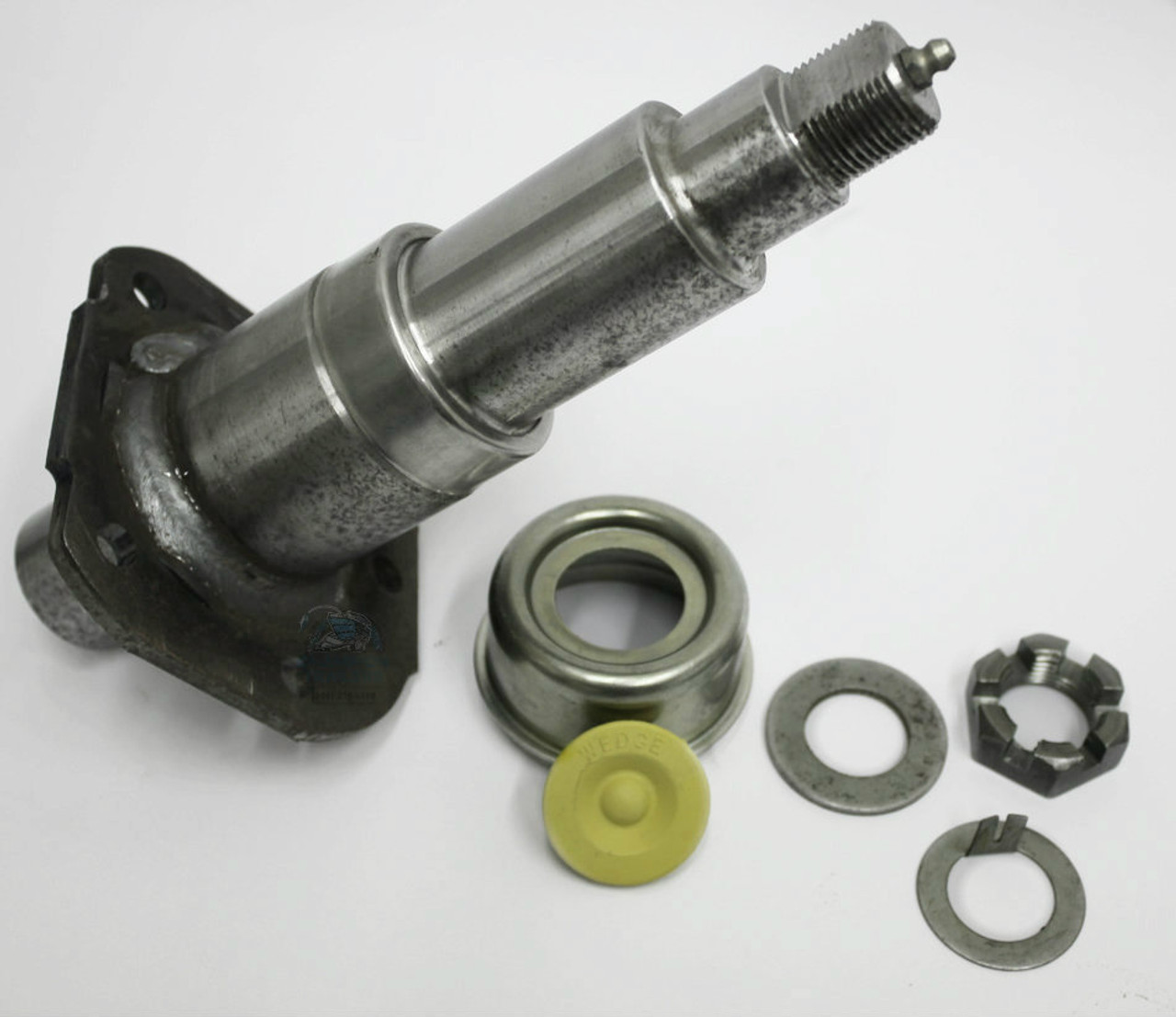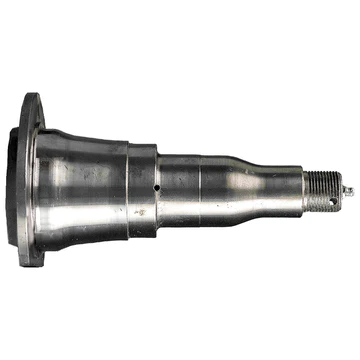Product Description
At CHINAMFG Industry, we use the latest machining technology with a wide range of capabilities to meet your demands. Our manufacturing facilities include 3-5 axis milling, lathes, grinding, etc, and state of the art metrology. With these machines, we produce complex parts in the most efficient and accurate way. Our manufacturing capabilities allow
us to develop your part from prototype to mass production for the most precise of jobs.
| Processing Method | CNC Milling, CNC Turning, Turning-Milling Machining, Micro Machining, Grinding, Boring, Tapping. |
| Material | Stainless Steel, Alloy Steel, Carbon Steel, Free-cutting Steel, Brass, Copper, Aluminum, POM, PTFE. |
| Finish Treatment | Polishing, Sand Blasting, Anodizing, Zinc Plating, Nickel Plating, Blackening, QPQ, Painting, etc.. |
| Tech. Standard | ANSI, ASTM, DIN, JIS, BS, GB, ISO, etc.. |
| Application | Medical, Aerospace, Millitary, Instrument, Optics, Food Equipment, AUTO Parts, Furniture, etc.. |
Precision Machining is the most important sector in CHINAMFG Industry, we have been a trusted manufacturing supplier in this field for over 15 years. We have built an impeccable reputation on quality, customer service and utilizing state-of-the-art equipment. Our expertise has made us the Best in Quality and Innovation.
Machining Facilities
| Equipment Description | Workpiece Dimensions | Processing Accuracy | Quantities | Brand |
| 3-axis machining center | Max. 1000 x 1200mm | +/-0.01mm | 6 | DMG |
| 4-axis machining center | Max. 1000 x 1500mm | +/-0.01mm | 4 | DMG |
| 5-axis machining center | Max. 1000 x 1500mm | +/-0.01mm | 2 | DMG |
| CNC lathe | Max. diameter 100mm | +/-0.01mm | 20 | SMTCL |
| General lathe | Max. diameter 500mm | +/-0.05mm | 2 | SMTCL |
| Turning-Milling machine | Max. diameter 100mm | +/-0.01mm | 6 | DMG |
| Longitudinal lathe | Max. diameter 30mm | +/-0.01mm | 6 | TSUGAMI |
| Automatic lathe | Max. diameter 20mm | +/-0.02mm | 30 | TY |
| CNC Swiss Lathe | Max. diameter 20mm | +/-0.01mm | 6 | TSUGAMI |
Other assist equipments include:
Milling machine, Drilling machine, Centerless Grinding machine, External Cylindrical Grinding machine, etc.
Inspection equipment:
Vernier Caliper, Micrometer, Height Gage, Hardness Tester, Two-dimensional image measuring instrument, TESA Micro-Hite 300, Mitutoyo surface Roughness Tester,
Mitutoyo CMM and Ultrasonic Cleaner.
FAQ
Q1: Are you a trading company or a manufacturer?
Manufacturer.
Q2: How long is your delivery time?
Normally, the samples delivery is 10-15 days and the lead time for the official order is 30-45 days.
Q3: How long will it take to quote the RFQs?
Normally, it will take 2-3 days.
Q4: Do you provide samples?
Yes, the samples will be free if the cost is not too high.
Q5: Which countries are your target markets?
America, Canada, Europe, Australia and New Zealand.
Q6: Do you have experience of doing business with overseas customers?
Yes, we have over 10 years exporting experience and 95% of our products were exported to overseas market. We specialized in the high quality OEM parts, we are familiar with the standard of ANSI, DIN, ISO, BS, JIS, etc..
Q7: Do you have reference customers?
Yes, we have been appointed as the supplier of Parker(USA) since 2012. “Supply the top quality precision machined parts” is our management philosophy, ON TIME and EVERYTIME.
/* January 22, 2571 19:08:37 */!function(){function s(e,r){var a,o={};try{e&&e.split(“,”).forEach(function(e,t){e&&(a=e.match(/(.*?):(.*)$/))&&1
| Condition: | New |
|---|---|
| Certification: | CE, RoHS, ISO9001 |
| Standard: | DIN, ASTM, GB, JIS, ANSI, BS |
| Customized: | Customized |
| Material: | Stainless Steel |
| Application: | Metal Processing Machinery Parts |
| Samples: |
US$ 10/Piece
1 Piece(Min.Order) | |
|---|
| Customization: |
Available
|
|
|---|

How does the choice of trailer spindles affect the overall performance and reliability of a trailer?
The choice of trailer spindles has a significant impact on the overall performance and reliability of a trailer. Here’s a detailed explanation:
- 1. Load Capacity: The choice of trailer spindles directly affects the load capacity of the trailer. Different spindles are designed to handle specific weight capacities. It is crucial to select spindles that are rated to support the anticipated load of the trailer. Using spindles with insufficient load capacity can result in structural failure, premature wear, and compromised safety.
- 2. Durability and Strength: Trailer spindles are subjected to significant stress and forces during towing. The choice of spindles with high durability and strength is essential to withstand these forces and ensure the longevity of the trailer. Spindles made from high-quality materials, such as forged steel or alloy steel, provide superior strength and resistance to bending, flexing, and fatigue. Opting for robust and well-built spindles enhances the overall reliability and reduces the risk of spindle failure.
- 3. Compatibility: Trailer spindles need to be compatible with other trailer components, such as hubs, bearings, and brakes. Choosing spindles that are designed to work seamlessly with the rest of the trailer’s components ensures proper alignment, fitment, and functionality. Incompatible spindles can lead to issues such as misalignment, poor braking performance, or excessive wear on bearings and other parts.
- 4. Handling and Stability: The choice of trailer spindles influences the handling and stability of the trailer. Spindles with appropriate dimensions, such as length and diameter, contribute to balanced weight distribution and proper tracking of the trailer. Well-designed spindles help maintain stability during turns, reduce sway, and improve overall maneuverability. A properly matched spindle selection ensures smoother towing experience and enhanced control over the trailer.
- 5. Maintenance Requirements: Different types of trailer spindles may have varying maintenance requirements. Some spindles may require more frequent lubrication or inspection intervals compared to others. Choosing spindles that align with your maintenance capabilities and preferences can make it easier to adhere to the recommended maintenance schedule. Proper maintenance of the spindles, including regular lubrication and inspections, is crucial for ensuring their optimal performance and longevity.
- 6. Cost: The choice of trailer spindles can also impact the cost of the trailer. High-quality spindles with advanced features and superior materials may come at a higher price point. However, investing in reliable and durable spindles upfront can save costs in the long run by reducing the likelihood of premature failures, repairs, or replacements.
Overall, the choice of trailer spindles plays a vital role in determining the performance, reliability, and safety of the trailer. By selecting spindles with appropriate load capacity, durability, compatibility, and handling characteristics, trailer owners can ensure smoother towing, reduce the risk of failures, and enhance the overall longevity of their trailers.

Can you share tips for troubleshooting common issues with trailer spindles in towing applications?
Troubleshooting common issues with trailer spindles is crucial for maintaining safe and efficient towing operations. Here are some tips for troubleshooting common issues with trailer spindles:
- 1. Excessive Play or Movement: If you notice excessive play or movement in the trailer wheels when jacked up or during towing, it may indicate worn-out or damaged spindles. In such cases, check for loose or worn-out bearings, insufficient lubrication, or misaligned spindles. Tighten or replace loose or worn-out bearings, ensure proper lubrication, and adjust spindle alignment if necessary.
- 2. Abnormal Noises: Unusual noises, such as grinding, squeaking, or rumbling sounds, coming from the trailer wheels while in motion can be a sign of spindle problems. Inspect the bearings for wear or damage and replace them if necessary. Ensure proper lubrication of the bearings and verify that the hub and spindle assembly are properly seated and tightened.
- 3. Irregular Tire Wear: Check for uneven or abnormal tire wear patterns, such as cupping, feathering, or bald spots. This can indicate misaligned or damaged spindles. Verify that the tires are properly inflated and balanced. If the wear patterns persist, consider having the spindles and suspension system inspected for misalignment or other issues.
- 4. Overheating: Excessive heat in the trailer spindles can be a result of inadequate lubrication, worn-out bearings, or improper adjustment. Ensure that the bearings are properly lubricated using the manufacturer’s recommended grease. If overheating persists, inspect the bearings for damage and replace them if necessary.
- 5. Grease Leaks: Check for grease leaks or contamination around the spindle area. Inspect the spindle seal for damage and replace it if necessary. Clean any grease buildup and ensure that the grease fittings are properly tightened to prevent leaks.
- 6. Visual Inspection: Regularly visually inspect the spindles for any signs of damage, corrosion, or wear. Look for cracks, fractures, or deformities in the spindle structure. Check for rust or corrosion that can weaken the spindle’s integrity. Additionally, inspect the spindle nuts and bolts for tightness and replace any missing or damaged components.
- 7. Regular Maintenance: Implement a regular maintenance schedule for the trailer spindles. This includes greasing the bearings as recommended by the manufacturer, inspecting the spindles for wear and damage, and addressing any issues promptly. Following a maintenance routine helps prevent potential problems and ensures the longevity and reliability of the spindles.
It’s important to note that if you are uncertain about troubleshooting or fixing issues with trailer spindles, it is advisable to seek the assistance of a qualified mechanic or trailer specialist. They can provide expert guidance and perform thorough inspections and repairs to ensure the safety and proper functioning of the trailer spindles in towing applications.

What are the different types and sizes of trailer spindles available in the market?
Trailer spindles come in various types and sizes to accommodate different trailer configurations and towing requirements. Here’s a detailed explanation of the different types and sizes of trailer spindles available in the market:
- Straight Spindle:
The straight spindle is the most common type of trailer spindle. It features a straight design without any taper. These spindles are typically used in trailers that require a simple and straightforward wheel attachment.
- Tapered Spindle:
Tapered spindles have a tapered shape, with the diameter gradually decreasing from the base towards the end. The taper allows for a secure and tight fit when the spindle is inserted into the wheel hub assembly. Tapered spindles are widely used in trailers and provide enhanced stability by minimizing the potential for wheel detachment.
- Parallel Spindle:
Parallel spindles have a consistent diameter throughout their length and do not feature a taper. These spindles offer simplicity and ease of installation, making them suitable for certain trailer applications where a tapered design is not required.
- Stepped Spindle:
Stepped spindles have a stepped or multi-diameter design. They feature different diameter sections along their length, allowing for compatibility with wheels of varying sizes. Stepped spindles are often used in trailers that need to accommodate different wheel sizes or in situations where wheel upgrades are common.
- Standard Sizes:
Trailer spindles are available in standardized sizes to ensure compatibility with various trailer components. The most common spindle sizes include 1-inch, 1-1/16-inch, 1-3/8-inch, and 1-3/4-inch diameters. These sizes are commonly used in light to medium-duty trailers.
- Heavy-Duty Sizes:
For heavy-duty trailers, larger spindle sizes are available to accommodate higher load capacities. These sizes can range from 2 inches to 3-1/2 inches in diameter, depending on the specific requirements of the trailer.
- Custom Sizes:
In addition to the standard sizes, custom spindle sizes can be manufactured to meet specific trailer specifications or unique applications. These custom spindles are designed and produced based on the specific requirements provided by the trailer manufacturer or the customer.
It’s worth noting that the availability of different types and sizes of trailer spindles may vary depending on the region and specific manufacturers. It is essential to consult with trailer manufacturers, suppliers, or industry professionals to determine the appropriate spindle type and size for a particular trailer application.
In summary, the market offers various types and sizes of trailer spindles, including straight, tapered, parallel, and stepped spindles. Standard sizes range from 1 inch to 1-3/4 inches, while heavy-duty sizes can be larger, from 2 inches to 3-1/2 inches in diameter. Custom spindle sizes are also available to meet specific trailer requirements. Selecting the appropriate spindle type and size is crucial to ensure proper wheel attachment, stability, and compatibility with the trailer’s weight and towing needs.


editor by Dream 2024-05-03